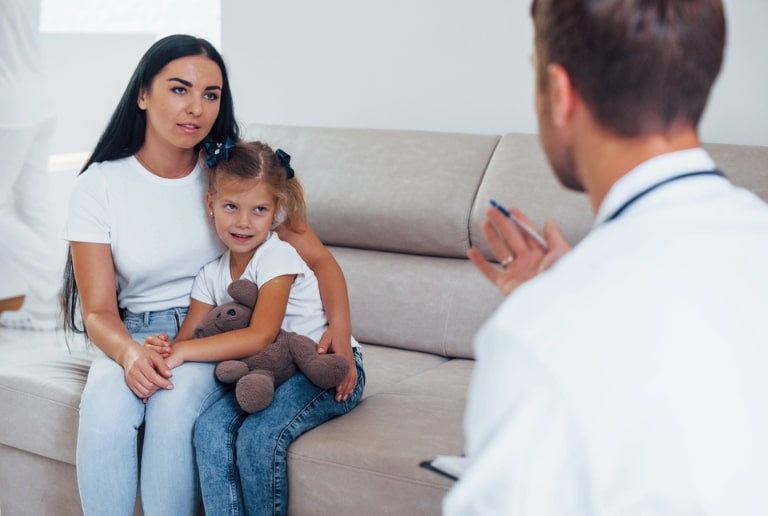How Can a Child Psychologist Help My Family?

When most parents think about child psychologists, crisis situations usually come to mind. Maybe there’s been a traumatic event, or perhaps behavioral problems have reached a breaking point.
But here’s something that might surprise you: child psychology isn’t just for times of trouble.
In fact, a psychologist with their online master’s in counseling psychology can be a valuable addition to your family’s mental health toolkit, supporting your child’s development in ways that extend far beyond crisis intervention.
Think of it this way: you wouldn’t wait until your child has a serious illness to establish a relationship with a pediatrician, right? The same principle applies to mental health support.
Nearly 1 in 5 children ages 3 to 17 had ever been diagnosed with a mental, emotional, or behavioral health condition, but child psychologists offer so much more than just diagnosis and treatment.
Building Emotional Intelligence
One of the most valuable gifts a child psychologist can offer your family is helping your child develop emotional intelligence early.
Helping children understand their emotions early can have a powerful impact on current and future emotional development. This isn’t about fixing problems; it’s about building lifelong skills.
When children work with a psychologist, they learn to identify what they’re feeling, understand why those emotions arise, and develop healthy ways to express them. These skills become the foundation for better relationships, improved self-esteem, and more effective communication throughout their lives.
Strengthening Family Communication
Child psychologists can help children better understand and express their thoughts and feelings. In addition, they can aid parents in communicating with their children and identifying their needs efficiently. This collaborative approach benefits the entire family unit.
Many families discover that sessions with a child psychologist become a safe space where everyone can practice new communication skills. Parents often learn different ways to approach conversations with their children, while kids gain confidence in expressing their needs and concerns.
It’s amazing how much family harmony can improve when everyone feels heard and understood.
Supporting Social Development and Relationships
Social development is about how the child develops the values, awareness, and social skills necessary to relate to the people around them: their parents, peers, authority figures, and animals. Child psychologists are experts at helping children navigate the complex world of social interactions.
Whether your child is naturally shy, overly aggressive, or somewhere in between, a psychologist can help them develop age-appropriate social skills. This might include learning how to make friends, resolve conflicts peacefully, or handle peer pressure.
These skills become particularly valuable as children move through different school environments and social situations.
Navigating Life’s Big Changes
Life throws curveballs at all of us, and children often need extra support during transitions. Child psychologists are often included in the comprehensive care of children with medical problems, but they’re equally helpful during other major life changes like moving to a new city, starting at a new school, or adjusting to family changes.
Rather than waiting to see how your child handles these transitions, proactive support from a child psychologist can make these potentially stressful periods much smoother. They can help your child develop coping strategies and resilience that will serve them well throughout their lives.
Improving Academic and Learning Success
Child psychologists can help children and their parents develop strategies to deal with these kinds of problems and can collaborate with teachers to create a school environment that supports the child’s learning and well-being.
This collaborative approach between home and school can make a tremendous difference in your child’s academic experience.
Sometimes children struggle in school not because they lack intelligence, but because they haven’t developed effective study habits, concentration skills, or stress management techniques. A child psychologist can help identify these areas and work with your family to develop practical solutions.
If you’re considering engaging a psychologist for your child, you don’t need to wait for red flags or crisis situations. You know your child better than anyone else. If you feel your child is struggling with issues such as school, relationships, managing emotions, behavior, or learning, they may benefit from seeing a child psychologist.
Consider reaching out if you’d like to give your child additional tools for emotional regulation, if you want to strengthen family communication, or if you’re facing any significant life transitions.
The beauty of preventive mental health support is that it builds resilience before challenges become overwhelming. It’s an investment in your child’s future happiness and success, and in your family’s overall well-being.
Remember, seeking support for your child’s mental health is just as important as taking care of their physical health. With 20% of adolescents reported receiving mental health therapy, you’re certainly not alone in recognizing the value of this support.
Child psychology isn’t about fixing what’s broken; it’s about nurturing what’s already good and helping it flourish. When you think about it that way, doesn’t every family deserve that kind of support?




